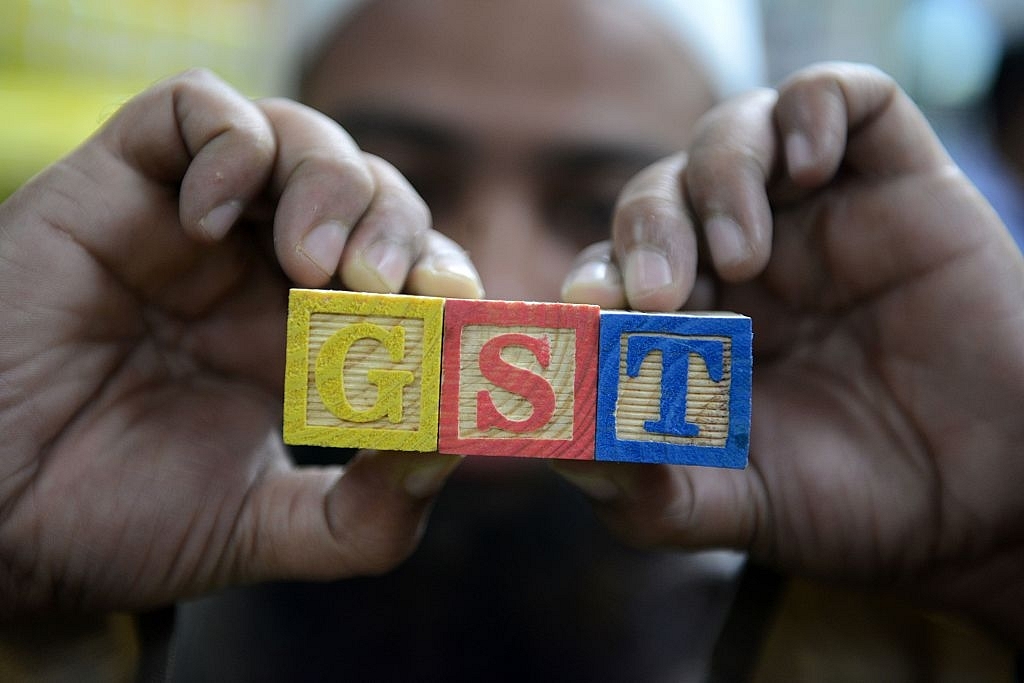Insta
GST An Inclusive Policy, Would Increase Welfare By 5.3 Per Cent, GDP By 4.2 Per Cent: US Fed

GST (NOAH SEELAM/AFP/Getty Images)
The United States Federal Reserve, in its latest report on India’s Goods and Services Tax (GST), has concluded that the simplification of the current existing multilayered federal tax structure will lead to surge in manufacturing output, thereby driving a growth of 4.2 per cent in India’s GDP. The report also concluded that the GST will be an inclusive policy and will raise the overall welfare by 5.3 percent in India.
How will the GST raise welfare?
According to the analysts, the GST will eliminate domestic and international trade barriers. This will provide consumers access to cheaper products, in turn increasing welfare. While states such as Tamil Nadu and West Bengal will see a rise of 12 to 16 per cent, other states such as Uttar Pradesh and Bihar will benefit from 2 to 3 per cent rise in welfare.
The map below represents the change in welfare. It is evident from the map that the level of welfare will rise in all Indian states, making the policy inclusive.
How will the GST raise GDP?
As discussed above, the GST will eliminate trade barriers, improving internal trade by almost 29 per cent. The GST, according to this analysis, will also increase the competitiveness of Indian companies, increasing India’s external trade by over 32 per cent. Increase trade, both internal and external, will deliver a 14 per cent growth in manufacturing.
However, the GST will have a very limited impact on agriculture production because most agricultural goods would remain exempt from the GST.
The report has been prepared by Eva Van Leemput, an Economist at the Board of Governors of the Federal Reserve, and Ellen A Wiencek, Research Assistant at Federal Reserve Board.
Support Swarajya's 50 Ground Reports Project & Sponsor A Story
Every general election Swarajya does a 50 ground reports project.
Aimed only at serious readers and those who appreciate the nuances of political undercurrents, the project provides a sense of India's electoral landscape. As you know, these reports are produced after considerable investment of travel, time and effort on the ground.
This time too we've kicked off the project in style and have covered over 30 constituencies already. If you're someone who appreciates such work and have enjoyed our coverage please consider sponsoring a ground report for just Rs 2999 to Rs 19,999 - it goes a long way in helping us produce more quality reportage.
You can also back this project by becoming a subscriber for as little as Rs 999 - so do click on this links and choose a plan that suits you and back us.
Click below to contribute.
Latest